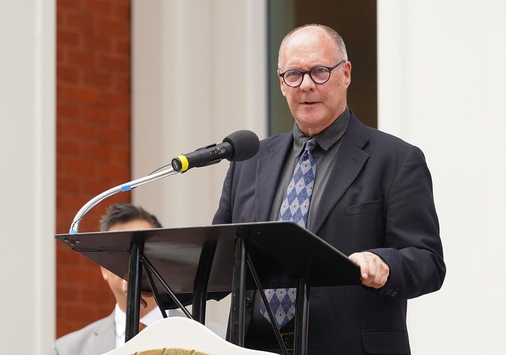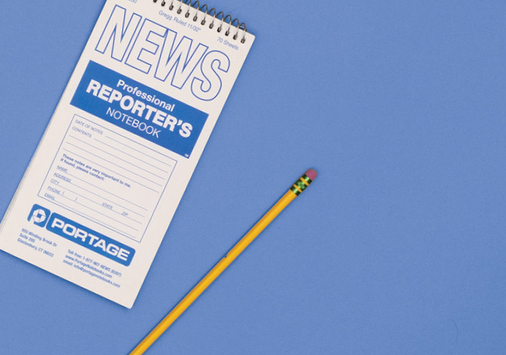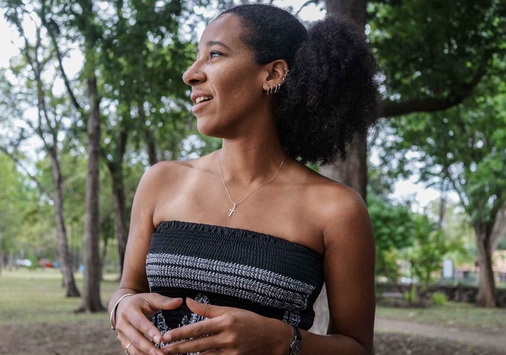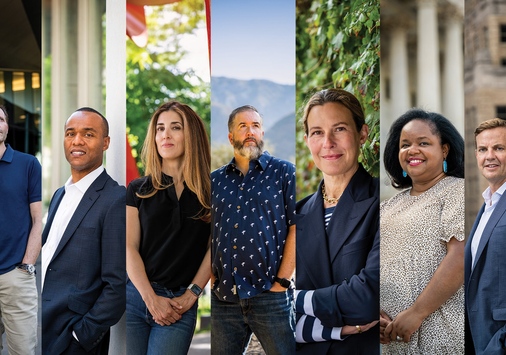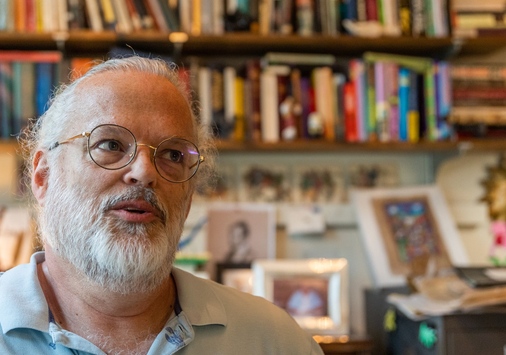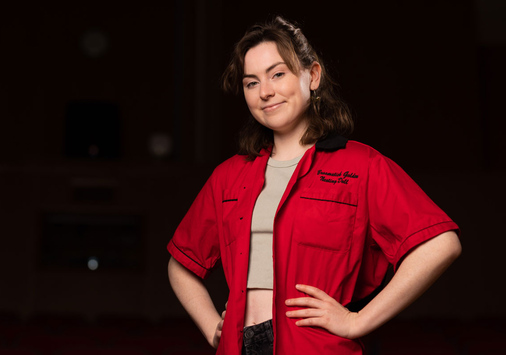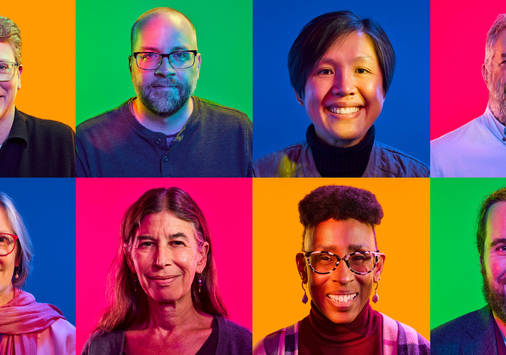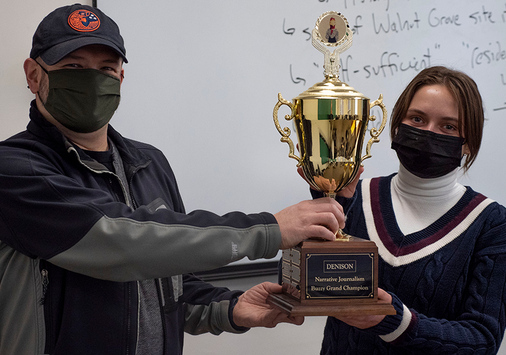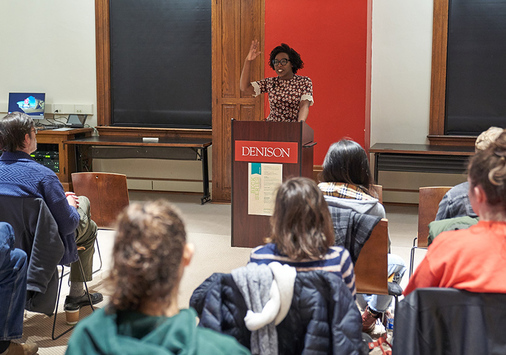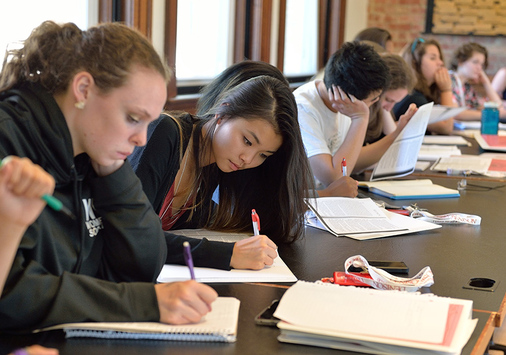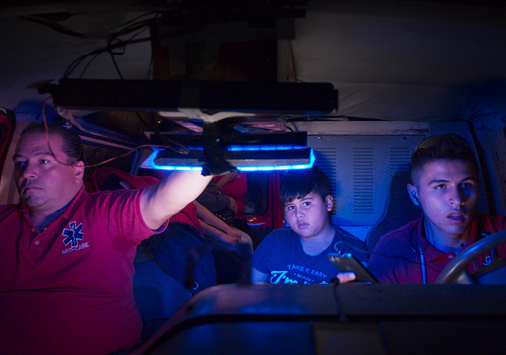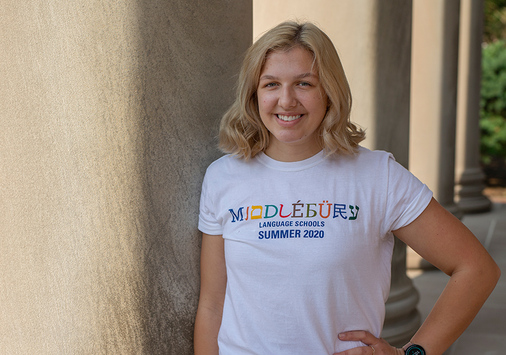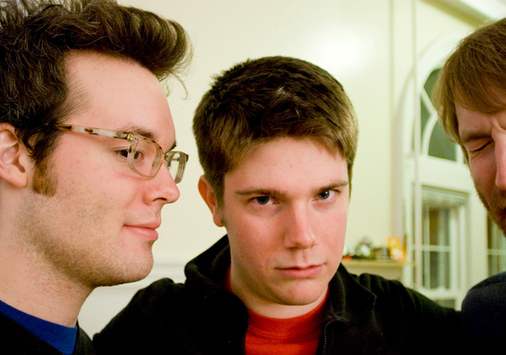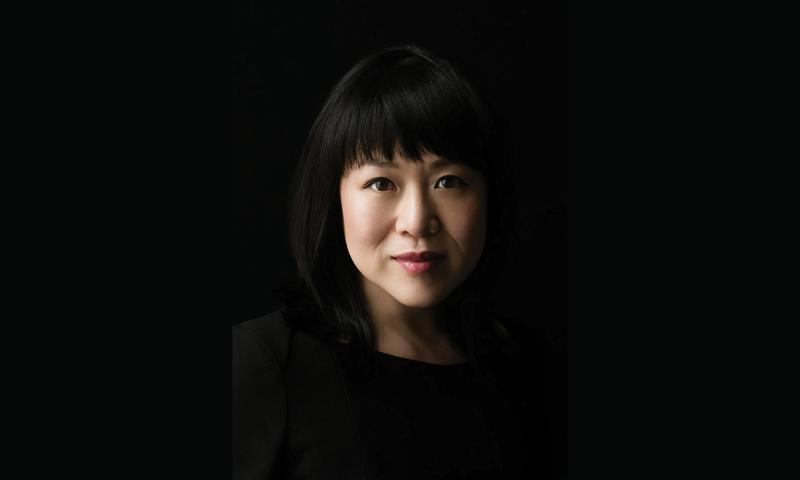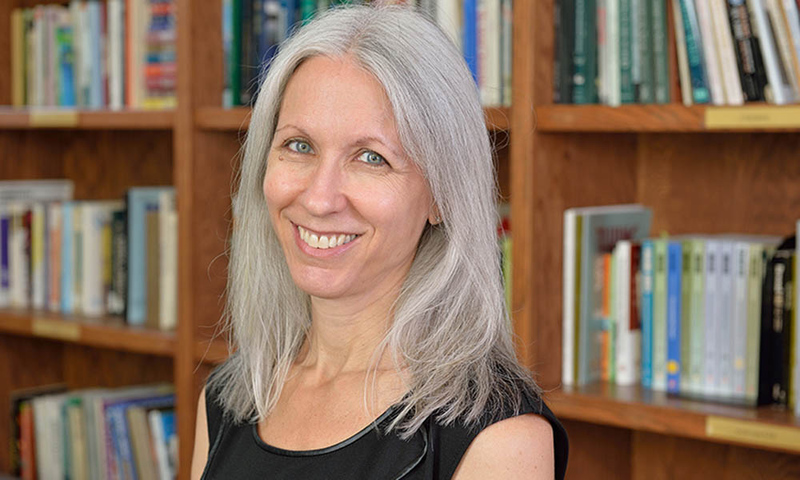Courses
2025 - 2026
For this academic year's course catalog, please visit our Academic Catalog site. For courses currently offered, please refer to the Schedule of Classes.
A study of selected works by men and women writing in the 8th through the 17th centuries. With close attention to various genres and through various critical approaches, this course attends to literary and cultural developments as reflected in a variety of texts and contexts.
A study of selected works by men and women in the 18th and 19th centuries in England. The course pays close attention to various genres - satire, poetry, drama, criticism, and fiction - and is designed to sharpen students' reading, interpretive, critical thinking, and writing skills while attending to literary and cultural developments in eighteenth-century, Romantic, and Victorian texts.
A study of principal plays, emphasizing the poetic and dramatic aspects of Shakespeare's work, as viewed through a variety of critical perspectives.
A historical survey of texts and literary movements in America before 1900. With attention to various genres and critical approaches, this course emphasizes literary responses to such issues as progress, national identity, race, gender, and the American landscape.
Introductory Topics to Literature introduces students to the study of literature by providing students with a broad overview of a literary topic, genre, or tradition chosen by the professor. Topics may include space and place in literature, politics and literature, current events and literature, economics and literature, etc. Genres may include poetry, the short story, the novel, drama, detective fiction, science fiction, domestic fiction, etc. Traditions may include African American literature, queer literature, British literature, postcolonial literature, etc. The course teaches students how to read, analyze, and enjoy literature as well as write about literature. It also teaches students why studying literature in college is important to their personal, professional, and civic lives.
A general category used only in the evaluation of transfer credit.
This course will teach students skills and materials that are important in literary studies today. It will include methods of reading and writing literary criticism, research methods in literary studies, analytical practices, an overview of literary theoretical debates of the 20th century, and selected readings from contemporary theory. In each section, the teacher will use one or two literary texts to test interpretative and theoretical approaches.
This class will recreate three classic pieces of British literature as twenty-first-century stories told in new media. The class will (1) reimagine the medieval pilgrimage narrative, The Canterbury Tales, as a series of podcasts, (2) map out a contemporary picaresque novel inspired by the eighteenth-century novel Moll Flanders, and (3) rewrite and illustrate the early-twentieth-century poem The Waste Land using generative AI. In each case, teams of 3-4 students will study the form and medium of the old book as well as its historical and cultural context, and then use that knowledge to imagine what a parallel story or poem might be in our own time and in new media forms. In doing so, students will learn how history, culture, form, and media shape imaginative storytelling, and they will become better storytellers themselves. They will also develop teamwork and collaboration skills as they learn to distribute work and hold each other accountable for realizing a shared vision. This course fulfills an oral competency (R) general education requirement, so students will offer several presentations over the course of the semester.
Crosslisting: DH 209.
A survey of 20th-century poetry. Attention to major poets as well as literary schools will be enhanced by attention to the wider history, philosophy, and aesthetics of the time.
A survey of 20th-century fiction. Attention to major writers will be enhanced by attention to the wider history, philosophy, and aesthetics of the time.
A survey of literary nonfiction writing in the 20th and 21st centuries that will ground students in the history and more recent developments of the genre as well as the ethical dilemmas of the genre.
Crosslisting: JOUR 200.
Selected poetry and prose by women guide inquiries into writing and gender and into related issues, such as sexuality, history, race, class, identity, and power.
Crosslisting: WGST 225.
Offers a basic understanding of and experience in writing poetry, fiction, and creative nonfiction and teaches students to pay close attention to language and narrative, central elements of all long-form nonfiction writing.
A survey of 20th-century drama with emphasis on British and American playwrights and an eye to female and minority dramatists disenfranchised from the main stages.
A study of selected works by and about bisexual, gay, lesbian, and transgender people.
In “The Witness and the Archive,” Giorgio Agamben argues that the only true witnesses of the Holocaust are victims of the gas chamber. So how do we bear witness to a traumatic past that defies memory, comprehension, signification, and even representation? Given the rise of hate—anti-Semitism and white nationalism—within the US and abroad, the need to remember and inquire is all the more pressing. This course will look at the ways prose, poetry, film, and theory attempt to bear witness to the Nazi-genocide, complicating and unsettling our understanding of the Holocaust. Although historiography will be frequently engaged, this is neither a history nor purely a literature course but rather a discussion-based inquiry into the way the Holocaust defies our discipline-based modes of study and requires a unique, empathy-rich approach that listens to the past while hearing its ghostly echoes in the present.
This course is a survey of the major issues, movements, and/or themes in the study of Asian American literature and culture—including novels, poetry, performance, short stories, graphic novels, memoirs, and essays—with the goal of understanding them within the contexts of their production. Issues and topics may include immigration, diaspora, ethnic and gender formation, kinship and sexuality, interethnic dynamics, cultural nationalism and feminism, model minorities and Orientalism, assimilation, and generational conflict.
The Caribbean is home to hundreds of islands and many nations, but the shared history of European colonialism and the Atlantic trade in enslaved people has given some geopolitical coherence to the region, which is culturally, ethnically, racially, and linguistically diverse. Though literature from the Caribbean is written in many languages, this course surveys Anglophone Caribbean literature and it analyzes it within the historical, political, and social contexts of colonialism, postcolonialism, and diaspora.
This course is an introductory survey of twentieth- and twenty-first-century Anglophone Canadian literature with an emphasis on multicultural voices and perspectives across a range of genres, including poetry, drama, short and long fiction, and critical theory.
Offers a historical survey of major texts, movements, and/or themes in the development of a distinct African American literary tradition. By examining texts from multiple genres and periods, students will be introduced to critical concepts central to the study of African American literature, including Middle Passage, slavery, diaspora, race, class, gender, sexuality, ecology, migration, language, and power.
Crosslisting: BLST 254.
A study of the literature of various ethnic, racial, and regional groups of the United States. This course explores cultural heritages, historical struggles, artistic achievements, and contemporary relations of groups in American society.
Crosslisting: BLST 255.
A study of contemporary Anglophone African novels, all of which engage with histories and experiences of European colonialism.
Crosslisting: BLST 260.
This course examines humanity's relationship with and shifting conceptions of the nonhuman world through a range of literary and cultural texts. While reading selections will vary, they will generally include writers who reflect different ethnic, regional, and/or national outlooks and who work in various modes, including fiction, poetry, memoir, natural history, and science writing.
Crosslisting: SES 291.
A general category used only in the evaluation of transfer credit.
A study of major literary and cultural theories important to literary studies today. The course will emphasize readings in primary texts by critical theorists as well as applications of those theories to text of various kinds. The teacher may focus on in-depth studies of one or two critical or cultural theories.
An intensive study of selected writers, works, literary genres, or themes. May be taken more than once for credit.
A study of selected works of major and representative writers working in the genre of the short story. This course may focus on a few specific writers (such as Eudora Welty or Raymond Carver), or on selected schools and movements (such as the avant-garde, naturalism, or modernism), or on special topics within the field (such as postcolonial fictions or Southern writing).
Historical and contemporary African - American women's literature grounds an inquiry into black women's literary and intellectual traditions within the matrix of race, gender, class, and sexual relations in the United States.
Crosslisting: BLST 325 and WGST 325.
A study of Native American literature that will provoke considerations of Native American cultural and religious traditions, historical and legal struggles, artistic achievements, and contributions to contemporary American culture.
Queer Theory is an interdisciplinary course designed to introduce students to historical and theoretical treatments of topics such as the essentialism vs. constructionism debate; intersections of race/gender/class and sexual orientation; science and representation; performativity and normativity; and ethics, politics, and law.
Crosslisting: QS 227.
A critical and theoretical exploration of the formal elements and structures of prose narratives. The course will examine readings in various prose genres, including (but not limited to) novellas, novels, and memoirs. It is especially useful for creative writers working in creative nonfiction and fiction.
A critical and theoretical exploration of the formal structures and expectations of genre within poetry. The course will examine readings in a range of poetic genres and forms, both traditional and contemporary. It is especially useful for English literature majors and English-Creative Writing majors working in poetry.
Intensive study of drama from 1956 to the present, with an emphasis on British and American playwrights. The course will focus on the issues, problems, techniques, and generic forms particular to contemporary drama, with interest in the emerging drama of minority, female, and GLBTQ playwrights.
Crosslisting: QS 351.
This course will explore the English novel by studying special thematic topics, its evolution, and/or developmental influences. The course might include such authors as DeFoe, Fielding, Austen, Bronte, Gaskell, Dickens, Eliot, or Hardy.
This class studies the movements and traditions within contemporary novels, focusing on such writers as Toni Morrison, Philip Roth, Zadie Smith, and Salman Rushdie.
This class studies the schools, movements, traditions, and innovations within contemporary poetry, focusing on selected works of such writers as Anne Carson, W.S. Merwin, Carl Phillips, and Charles Wright.
This class studies long fiction written by trans people that feature trans experiences. The Trans novel also reviews historical and methodological elements of Queer Studies.
A study of the development of the English language and its dynamic presence in the world today. In addition to surveying the history of English from its Indo-European origins to the present time, units within the semester cover general linguistics topics, contemporary literacy controversies, and the social implications of dialect variation and changes in usage.
Special topics courses studying the textual forms of England, Scotland, Wales, and Ireland from 500 to 1500 CE.
Selected works in translation from the Middle Ages through the 21st century. Depending on the topic of the seminar, authors studied may include such diverse figures as Chrétien de Troyes, Dante, Christine de Pisan, Cervantes, Madame de Lafayette, Molière, Goethe, Ibsen, Tolstoy, Calvino, and Christa Wolf.
An analysis of the interrelationship between the cultural phenomenon and the literature of the Harlem Renaissance, particularly the way in which the social, economic and political conditions of the era helped to shape the literary art of the 1920s.
Crosslisting: BLST 355.
A study of representative samples of Black literature ranging from slave narratives to contemporary Black fiction.
Crosslisting: BLST 356.
Readings in literature and criticism from Asia, Africa, Latin American, and the Caribbean, in response to the experience of colonialism.
Crosslisting: BLST 357.
This course focuses on the movement, genre, and aesthetic known as Afrofuturism and related concepts such as Africanfuturism and Astro-Blackness. Students will read a selection of critical essays and literature that represent or engage with these concepts and explore media such as film and music. Here are some key questions that the course will try to answer: What is Afrofuturism? When and where did it begin? Is it a national or global phenomenon? What are some of the messages “encoded” in Afrofuturism when it comes to Blackness? How does this genre engage with not only race but class, gender, sexuality, age, and so on.
Crosslisting: BLST 358 and WGST 358.
Offers the student an opportunity to develop, with the help of an interested professor, a special program of study in a given topic for one semester. May be taken more than once. Directed Study credit may be used to count toward an English major, but it may not be used in place of required 300-level courses.
Offers the student an opportunity to develop, with the help of an interested professor, a special program of study in a given topic for one semester. May be taken more than once. Directed Study credit may be used to count toward an English major, but it may not be used in place of required 300-level courses.
Offers the student an opportunity to develop within a semester a wholly individualized program of study, to be supervised by an interested professor. Independent Study credit may be used to count toward an English major, but it may not be used in place of required 300-level courses.
Offers the student an opportunity to develop within a semester a wholly individualized program of study, to be supervised by an interested professor. Independent Study credit may be used to count toward an English major, but it may not be used in place of required 300-level courses.
A study of selected works of poetry, prose, and drama from 1500-1660.
Special topics courses based in the literacy culture of England from roughly 1640-1800.
Selected topics in the literature of 19th-century England. The course may focus on Romantic or Victorian authors or representative writers from both eras.
Selected topics in the literature of 19th-century America.
Selected topics in the writings of colonial and early national America.
Studies in the production, reception, and sociopolitical context of British drama from roughly 1660 to 1800.
An advanced workshop course in fiction writing. Students will be asked to read a wide selection of short fiction and to complete and revise a significant collection of their original work. Students will attain a working knowledge of fictional forms, techniques, and aesthetics.
Prerequisite(s): ENGL 237.
Gives students in-depth experience in narrative writing in a variety of literary nonfiction forms, ranging from the lyric and personal essay to long-form reportage.
Prerequisite(s): ENGL 237.
An advanced workshop in poetry writing. Students will be asked to read a wide selection of poetry and to complete and revise a chapbook collection of their original works. Students will attain a working knowledge of poetic forms, techniques, and aesthetics.
Prerequisite(s): ENGL 237.
This course explores nonfiction storytelling across multiple platforms. Students will learn how to edit audio and video stories using relevant and up-to-date programs. Most importantly, they will learn which is the most effective vehicle for the story they are telling..
Crosslisting: JOUR 201 and DH 230.
This course explores how a range of nineteenth-century American authors represented the natural world, examining how those representations of nature are informed by gender, class, and racial identities and how they become implicated in discourses of nationalism and imperialism.
Crosslisting: SES 391.
A general category used only in the evaluation of transfer credit.
An intensive study of a particular theme or topic in literary and/or cultural studies, this junior and senior seminar is required of all English literature majors but is open to all junior and senior English majors and minors. Seminar topics change each semester. May be taken more than once for credit. Open to juniors or seniors with a major or minor in English.
Students may enroll in Senior Research in their final year at Denison. Normally, Senior Research requires a major thesis, report, or project in the student's field of concentration and carries eight semester-hours of credit for the year. Typically, a final grade for a year-long Senior Research will not be assigned until the completion of the year-long Senior Research at the end of the second semester. Each semester of Senior Research is limited to a maximum of 4 credit hours. Note: Senior Research may not be used to fulfill General Education requirements.
Students may enroll in Senior Research in their final year at Denison. Normally, Senior Research requires a major thesis, report, or project in the student's field of concentration and carries eight semester-hours of credit for the year. Typically, a final grade for a year-long Senior Research will not be assigned until the completion of the year-long Senior Research at the end of the second semester. Each semester of Senior Research is limited to a maximum of 4 credit hours. Note: Senior Research may not be used to fulfill General Education requirements.
This one-semester course is the required capstone of the English–Creative Writing major. Directed by a creative writing professor in a combination of small-group workshops and individual tutorials, each student undertakes an individualized reading program and produces a substantial manuscript of original creative work.
Prerequisite(s): ENGL 237 and two of ENGL 383, 384, 385.
This one-semester course is an optional second semester of the English-Creative Writing major capstone project that may be taken following successful completion of ENGL 453. Directed in a combination of small-group workshops and individual tutorials, each student continues the individualized reading program begun in ENGL 453, culminating in an even more substantial and polished manuscript of original creative work.


